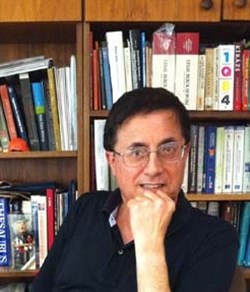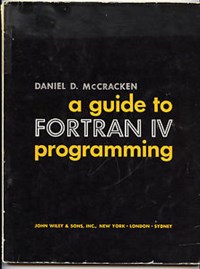Fazlı Can, Visiting Professor, Department of Computer Science
BY MELİS ERDEM (ARCH/II)
 I like giving presentations but I don’t rehearse what I am going to say, so there is an excitement to it. Arthur Rubinstein, a very well-known pianist, was also like that. Although he thought a lot about how he was going to play, he didn’t actually practice what he was going to play until the last possible moment. That way, it’s something new; it’s a kind of game. I was thinking about that as I was walking from my class to my office for this interview. I want to hear what I am going to say, since, you see, I didn’t know exactly what I would say.
I like giving presentations but I don’t rehearse what I am going to say, so there is an excitement to it. Arthur Rubinstein, a very well-known pianist, was also like that. Although he thought a lot about how he was going to play, he didn’t actually practice what he was going to play until the last possible moment. That way, it’s something new; it’s a kind of game. I was thinking about that as I was walking from my class to my office for this interview. I want to hear what I am going to say, since, you see, I didn’t know exactly what I would say.
Coming to the books that most influenced me, I knew immediately what one of them was. It was “Tutunamayanlar,” first published in 1972. At that time, I was planning to be a writer, even though I was studying electrical engineering. I read the book and liked it a lot. I read it in the reserve section; I remember the spot in the library. It was during the finals: Reading the book was so tempting. After reading the book, I said to myself, “If you became a writer— just an okay writer, an ordinary writer— you would be unable to support yourself. But if you became an engineer, even an ordinary engineer, you would be able to survive.” So I said, “I’ll go with engineering.” Then, during that time, I discovered programming, and there was this book by Daniel D. McCracken, “A Guide to FORTRAN IV Programming.” There weren’t too many programmers in the world and it was almost the only book available at the time, but of course I didn’t know that back then. I loved programming! It gives you a happiness that touches the same part of your brain that is touched when you write. It requires creativity; it results in a story with a beginning, middle and ending, and there are characters, variable names. Some programs are like beautiful poems. It’s just like writing. So I enjoyed programming a lot. Eventually, it became my profession. I stayed in that field since I also had the pleasure of writing as I was doing programming. Then later on, seven or eight years ago, I read a book by another author, Ali Teoman, with the title “İnsansız Konağın İkonu.” It is so beautiful. All of the stories are up to you. You have to complete them by yourself. The reader becomes a participant in the stories, becomes the storyteller, especially in the first and last ones in the book. I think it converted me into a writer again, since I started writing again.
 Going back to “FOTRAN IV,” it had a big impact on me above all in that it caused me to choose computer science as my profession. People who know me a little know that side of me: computer scientist or researcher. What inspired me in “FORTRAN IV” was probably the programs I read there, as well as the ones I wrote to solve the problems set out in its exercises. In addition, it was a well-written book, which further influenced me to like programming. In short, I liked the text, the questions and doing the programming. This book introduced me to the profession of programming, or, I might say, the profession of computer science. I liked it, and so I continued with it. If I hadn’t read that book, I would probably have been a writer. But as it happened, I became a program writer, rather than writing novels or stories in normal prose.
Going back to “FOTRAN IV,” it had a big impact on me above all in that it caused me to choose computer science as my profession. People who know me a little know that side of me: computer scientist or researcher. What inspired me in “FORTRAN IV” was probably the programs I read there, as well as the ones I wrote to solve the problems set out in its exercises. In addition, it was a well-written book, which further influenced me to like programming. In short, I liked the text, the questions and doing the programming. This book introduced me to the profession of programming, or, I might say, the profession of computer science. I liked it, and so I continued with it. If I hadn’t read that book, I would probably have been a writer. But as it happened, I became a program writer, rather than writing novels or stories in normal prose.
Programming is like learning how to bike or swim. You learn it, and it stays with you. You may lose some of your dexterity or skill, but still, once you learn it, it stays with you. Programming is good for thinking, and makes me happy.
